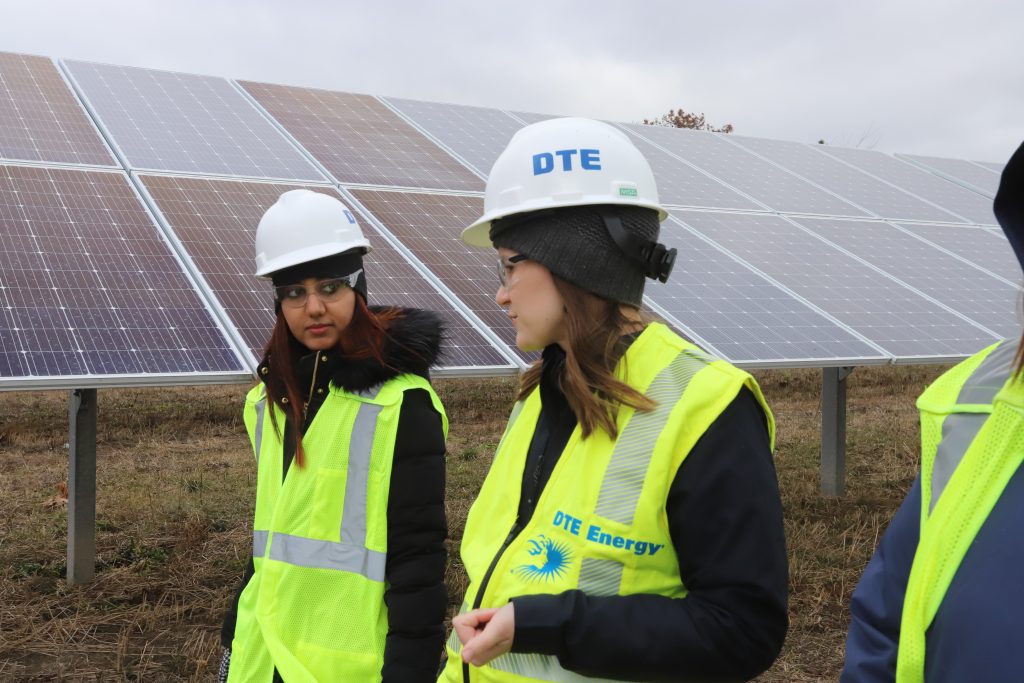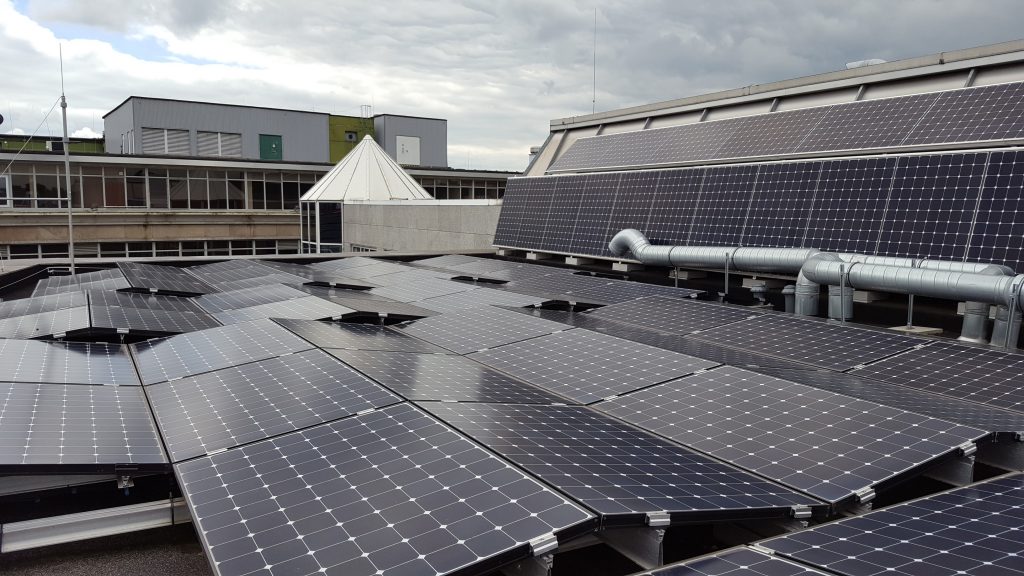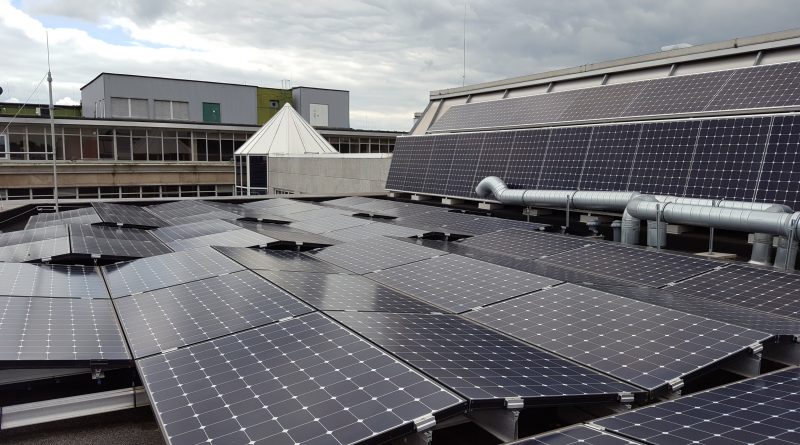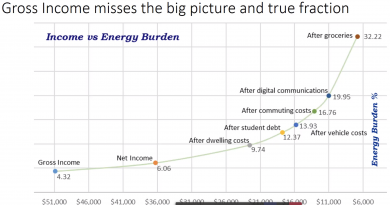Community Solar: Coming To A Michigan Near You?
Consumers Energy (NYSE: CMS) and DTE Energy (NYSE: DTE) announced yesterday that they are launching a new program to educate consumers in the state about community solar power. The program, MI Community Solar, will provide an “inclusive, equitable approach to building a community of solar participants, powered by all of us and supporting a greener future for Michigan,” according to Consumers’ Sarah Nielsen. Consumers in particular has made waves in recent months, announcing this summer that they were going to ditch coal altogether in favor of natural gas. Both utilities have struggled with major weather events in the Mitten state, no doubt dinging both utilities’ SAIDI and SAIFI numbers, which are already abysmal. I’ve already written plenty about my feelings on my local public utility. And about their affinity for fossil fuels. So, the community solar thing? Interesting, certainly. And welcome! Am I holding my breath? Well, maybe not.
Community Solar: A Change Of Heart?
It’s a somewhat surprising turnaround from recent efforts by utilities in the Mitten state to avoid having to invest in renewables. Michigan utilities spent millions of dollars lobbying against distributed solar, successfully overturning the state’s net metering law in 2019. To the uninitiated, net metering is a pricing scheme for distributed solar power (as in, on the rooftop of your house) in which you’re allowed to sell excess power back to the grid at the rate you would pay for it to buy it from the utility company. Consumers like it because it helps offset costs and quite literally can put money back in their pocket. Utilities don’t like it, though, because they stand to lose a huge amount of market share if everyone puts solar panels on their roof.
Beyond net metering, there are other tools that can be implemented at the level of state regulatory apparatus to help facilitate solar development. Different rates for electric purchasing or sales, for example, or a “feed-in tariff,” which pays customers a premium on solar power generated to incentivize PV development, are among a number of tools that can be used. Solar financing options have also blown up in recent years, which, combined with the dropping prices of modules, is helping spread the photovoltaic gospel.
But in Michigan, rather than invest in the future, DTE decided to use its vast reserves of cash and political power to overturn the net metering regulation, arguably to the detriment of the thousands of consumers in the state who had enrolled in the net metering program. This all came after double-digit year-over-year growth in the program enrollment from 2014 to 2015 in the Mitten state. The program was actually so popular that advocates were even worried that the enrollment would exceed the mandated cap of 1% of generation (DTE lobbied for this, arguing that it was necessary to maintain grid reliability, which falls under that category of “I guess that’s true given a bunch of sweeping, broad assumptions about how you manage infrastructure and don’t modernize it”). The utility argued, of course, that the change was beneficial, but advocates cried foul as the company began assessing new fees to solar customers.
“Electrification Is Not Enough For Decarbonization” – Consumers Energy
The Bright Value Proposition For Community Solar
Solar generation– both distributed resources (like the ones on your garage roof) and utility-scale sites- has, of course, exploded in recent years. We’re actually getting to the point where solar power has reached a point of cost parity with fossil fuels, in many cases being cheaper (especially when factoring in social costs associated with fossil fuels). But there are a lot of ratepayers who can’t get access to the benefits of it. Enter community solar!

What is community solar?
Community solar is a relatively new model that allows a greater degree of flexibility in deploying solar resources, in which members essentially own a part of a power generation asset instead of having to finance an entire rooftop system themselves (or instead of simply enrolling in a green power purchasing program, if such a program is offered by their utility). This is usually done through subscription or enrollment, and in the jurisdictions that allow (and encourage) it, community solar subscription not only encourages the development of renewable generation resources, it also saves customers money.
The model is a benefit if you do not own your own home, live in a multifamily building, or have some sort of general constraint (whether financial or architectural) that would prevent you from installing photovoltaics on your roof.
Most states have at least pilot-phase community solar programs. But this is new to the Mitten. In Detroit (the enclave of Highland Park, technically), our homegrown nonprofit Soulardarity has been advocating on this issue for years, having coalesced around DTE’s unprecedented repossession of municipal streetlighting. DTE, for its part, has developed its own solar farms, but these should not be confused with community solar projects, because they feed into the grid as any power plant would, and don’t provide direct financial benefits to specific ratepayers.

It’s anyone’s guess as to how this is actually going to play out. Consumers, in spite of perhaps saving wayward endangered turtles, is still going gangbusters on fossil gas. DTE is digging in, quite literally, on fossil fuels, too, although we should give credit where it is due– over the past several years, the company has expanded its renewables portfolio from a negligible percentage of mostly biomass generation to include photovoltaics and wind, too. Perhaps I’ve just seen too much “business as usual” to be too excited, but You Can Be Rest Assured [sic], as they say, that we will have updates as they come!
Check out Solar United Neighbors and learn about what’s going on in the community solar space. This article does not represent the viewpoint of anyone from whomst Nat collects a paycheck or healthcare benefits, nor would he ever make any representation to the contrary!




